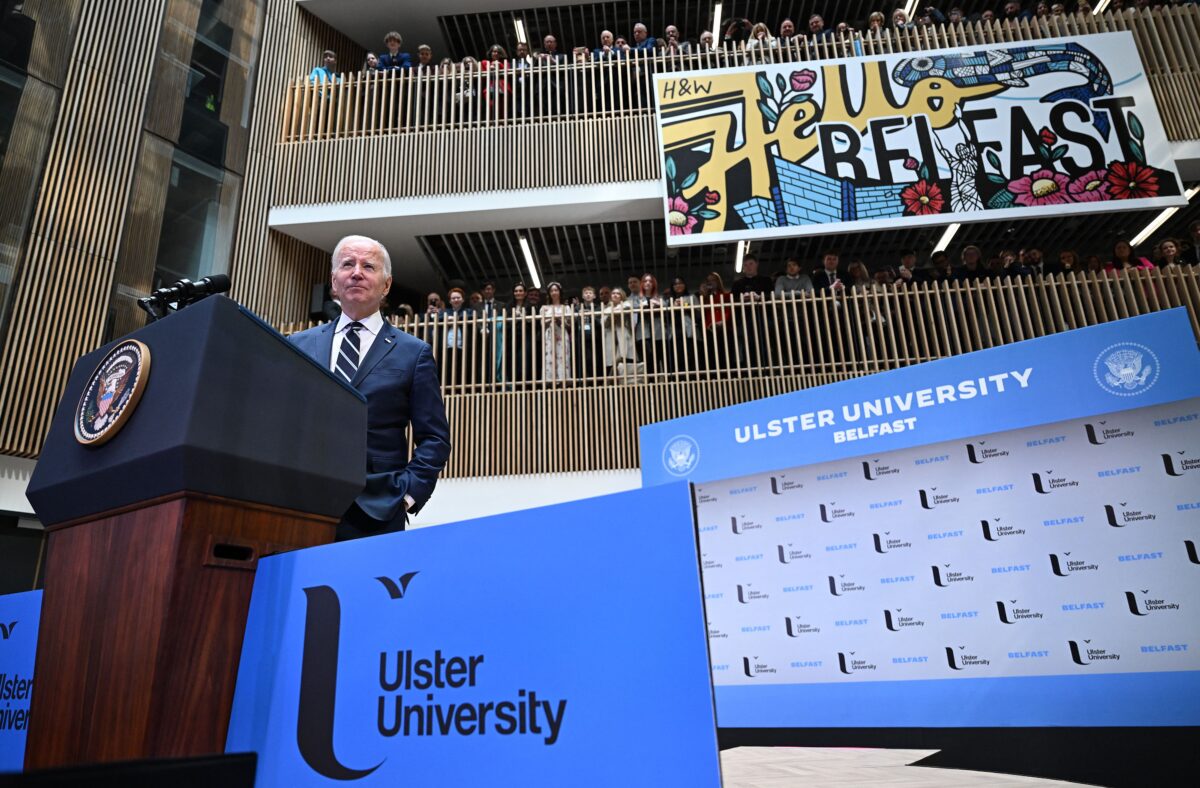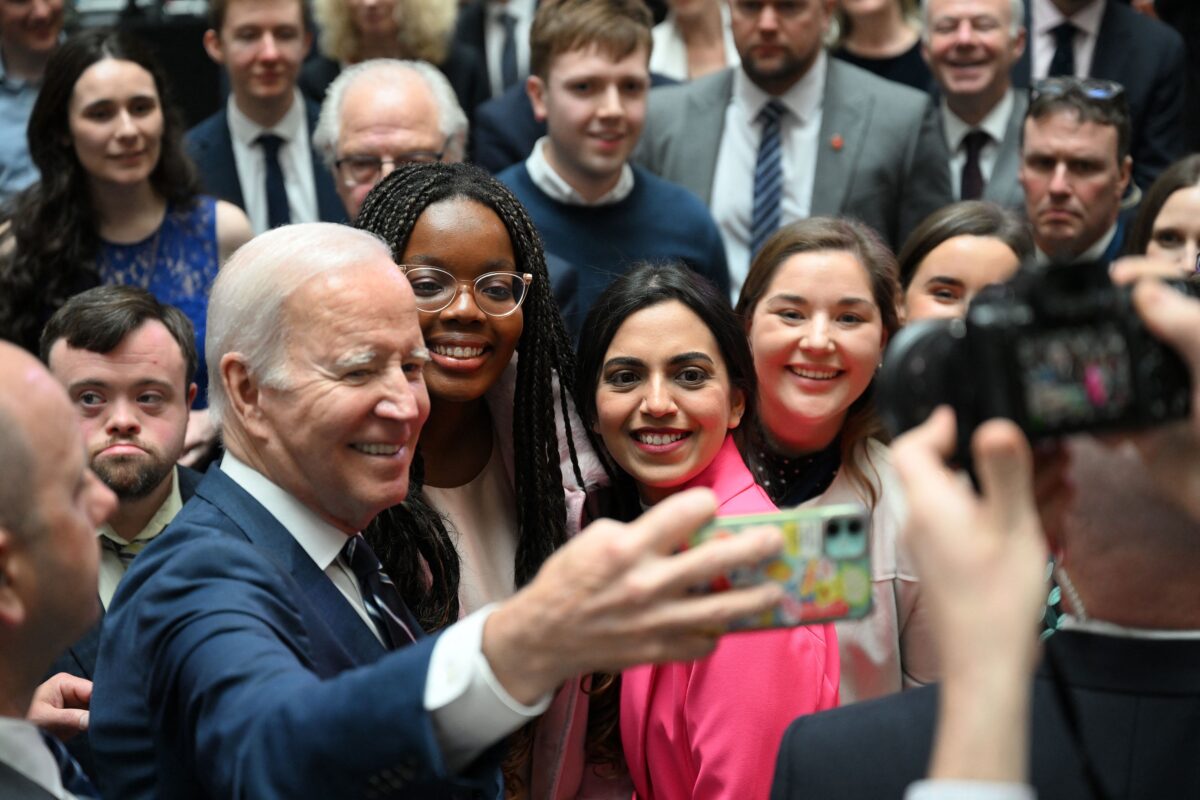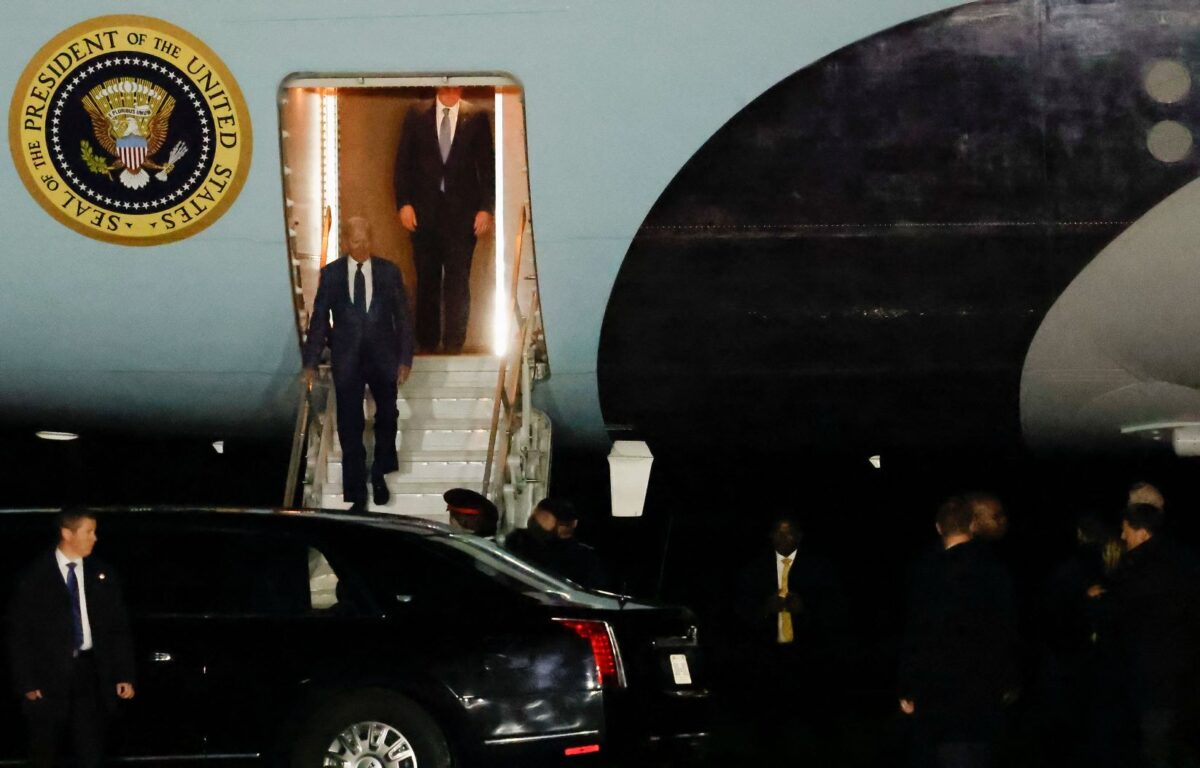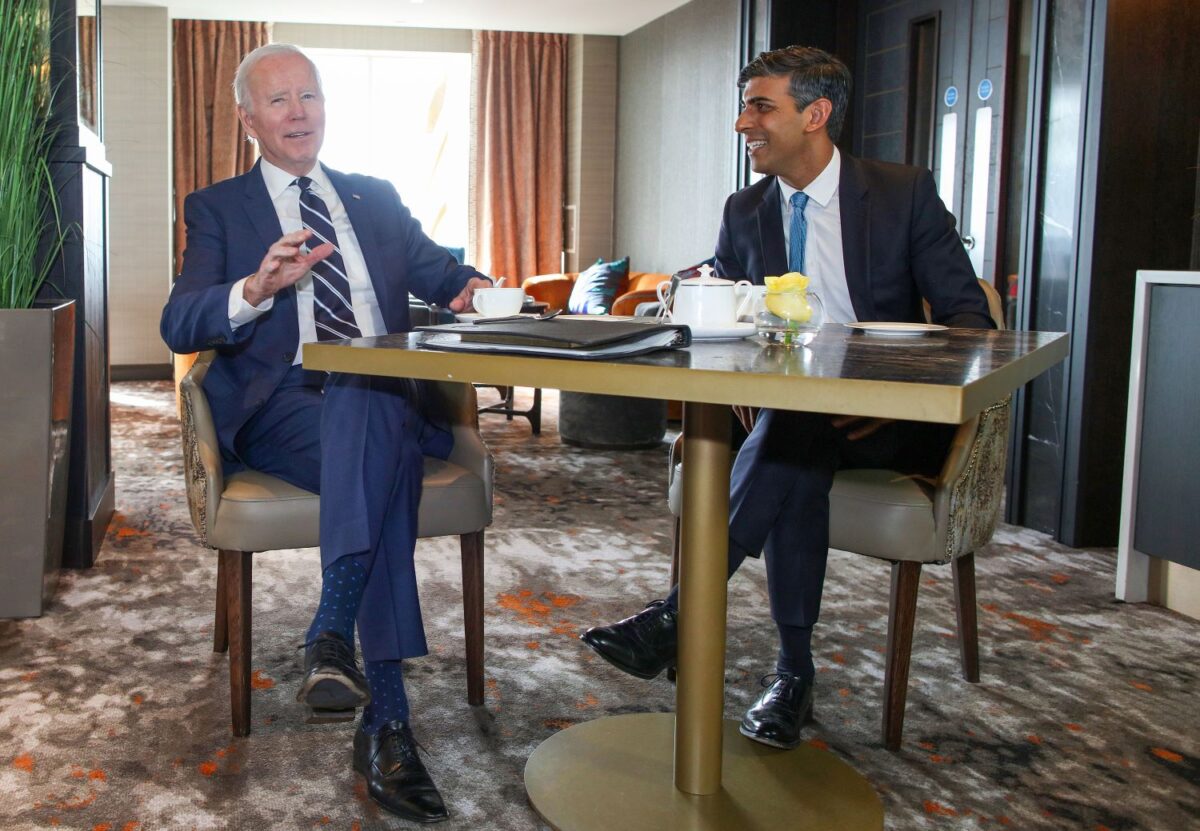


U.S. President Joe Biden has urged politicians in Northern Ireland to sort out their differences and restore the power-sharing executive which was a key part of the Good Friday Agreement, and has warned of the threat posed by the “enemies of peace.”
Biden told an audience at Ulster University on Wednesday the 1998 Good Friday Agreement had taken hard work to achieve and he said, “There were no guarantees that the deal on paper would hold, no guarantees it would be able to deliver the progress we celebrate today.”
He said, “I know the UK’s departure from the European Union presented complex challenges here in Northern Ireland and I encourage the leaders of the UK and the EU to address the issues in a way that serve Northern Ireland’s best interest.”
The president referred to the attempted murder of Detective Chief Inspector John Caldwell in February and said the way politicians in Northern Ireland united in the wake of the shooting showed the “enemies of peace” would not prevail.
The New IRA claimed responsibility for the attack on Caldwell, although nobody has yet been charged in connection with the attack.
Biden, who was accompanied by the U.S. Special Envoy for Northern Ireland, Joe Kennedy, said: “As a friend, I hope it’s not too presumptuous for me to say that I believe the democratic institutions established by the Good Friday Agreement remain critical for the future of Northern Ireland. So the decision you’re going to make is not for me to make.”
He said Northern Ireland needed a devolved government, accountable to the people “that works to find ways to solve hard problems together” and he added: “I hope the assembly and the executive will soon be restored. But that’s a judgment for you to make, not me.”
Biden also said: “Preserving the Belfast Good Friday Agreement is a priority for Democrats and Republicans alike in the United States. And that is unusual today. Because we’ve been very divided on our parties. This is something that brings Washington together. It brings America together.”
Biden arrived in Belfast on Tuesday night with the political process in Northern Ireland still deadlocked and the power-sharing executive at Stormont—which was set up as part of the Good Friday Agreement—suspended as the Democratic Unionist Party (DUP) protests against post-Brexit trading arrangements.
During his speech Biden emphasised the willingness of the United States to support Northern Ireland’s economic potential.
He said, “Today’s Belfast is the beating heart of Northern Ireland that is poised to drive unprecedented economic opportunity, investment for communities across the UK, across Ireland, across the United States.”
Biden is the fourth sitting U.S. president to visit Northern Ireland after Bill Clinton, George W. Bush, and Barack Obama.
After giving his speech Biden was scheduled to travel to Dundalk and then on to Dublin, the capital of the Republic of Ireland.
Biden, the second Irish Catholic president of the United States after John F. Kennedy, is expected to visit County Louth, located on the northeast coast of Ireland, where his great grandfather James Finnegan was born.
After that, the president is scheduled to visit Kilwirra Cemetery and tour Carlingford Castle. And in the evening, Biden is expected to visit Dundalk and participate in a community gathering.
Biden expressed deep pride in his Irish roots at the Annual Friends of Ireland Luncheon on Capitol Hill on St. Patrick’s Day in March.
“As many of you know, I, like all of you, take pride in my Irish ancestry,” he said. “And as long as I can remember, it’s been sort of part of my soul … how I’ve been raised.”
Earlier the White House rejected claims Biden was “anti-British” as he met UK Prime Minister Rishi Sunak for talks in Belfast about the political situation in Northern Ireland.
It was the third time the pair have met since Sunak took over from former Prime Minister Liz Truss in October 2022.
The former leader of the DUP, Dame Arlene Foster, said she thought Biden hated Britain and told GB News: “I don’t think there’s any doubt about that. And I just think the fact that he is coming here won’t put any pressure on the Democratic Unionist Party at all, quite the reverse actually, because he is seen by so many people as just simply pro-republican and pro-nationalist.”
Sammy Wilson, a DUP MP and the party’s chief whip at Westminster, also accused Biden of having “a record of being pro-republican, anti-unionist, anti-British.”
Wilson said Biden “wouldn’t accept any interference in the affairs of America by outside bodies or outside governments and I don’t think he should expect us to respond to that either.”
But in a briefing to journalists, Amanda Sloat, senior director for Europe at the U.S. National Security Council, said, “The track record of of the president shows that he’s not anti-British.”
She said it was “simply untrue” and pointed out he was engaging with Sunak for the third time in three months.
Biden himself, as he arrived for the meeting with Sunak, shouted to reporters that he would be “listening to all parties.”
After the talks Sunak said he had spoken to Biden about the “incredible economic opportunities” for Northern Ireland and described Britain and the United States as “very close partners.”
Sloat said the focus of the meeting between Biden and Sunak was on Northern Ireland, but she said they would also be discussing the war in Ukraine.
Sloat said, “I don’t anticipate that the two leaders are going to be talking about a free trade agreement on this trip … I think their conversation is going to focus primarily on the situation in Northern Ireland given that that’s where they’re meeting, as well as the chance to touch base on Ukraine and some other issues.”
She said they discussed economic matters when they met in San Diego in March and she said that conversation would be “furthered and deepened” when they meet again in Washington in June.
“We’re continually looking for ways to engage with the UK on a whole range of economic issues,” she added.
Biden—whose son Hunter is also accompanying him—is due to meet the Irish Prime Minister, or Taoiseach, Leo Varadkar, on Thursday and on Friday he is due to visit some distant cousins who live in Ballina, County Mayo.
According to the U.S. Census Bureau around 31 million Americans claim Irish ancestry—almost 1 in 10 Americans—and in some parts of the country it is as high as 30 percent of the population.
More than 3,600 people died during The Troubles when the Provisional IRA declared war against the British state in an attempt to force a united Ireland.
A small minority of Irish–Americans supported the Irish Northern Aid Committee, which raised money for IRA prisoners and also allegedly funded the purchase of weapons for use in the “armed struggle.”



